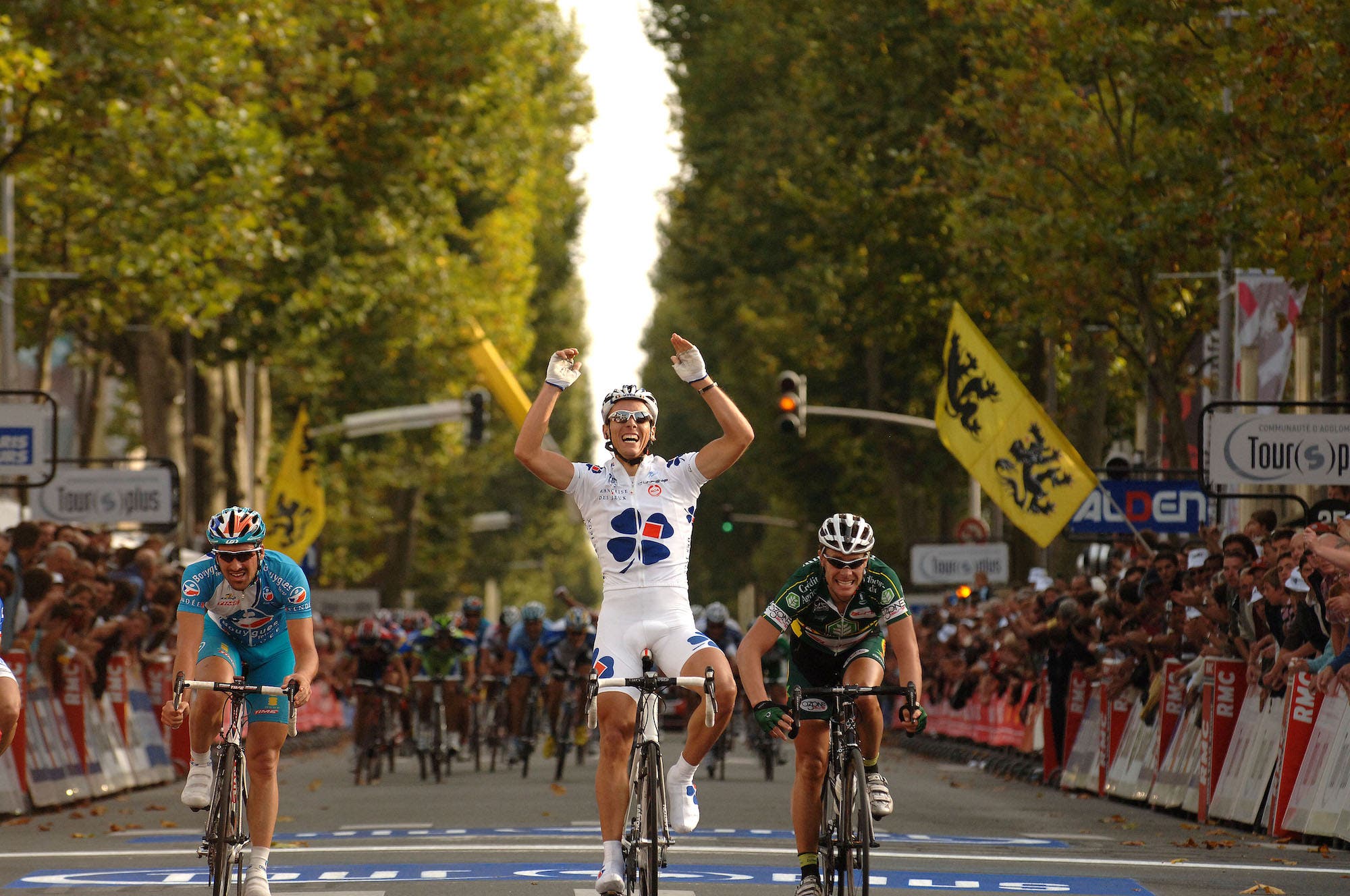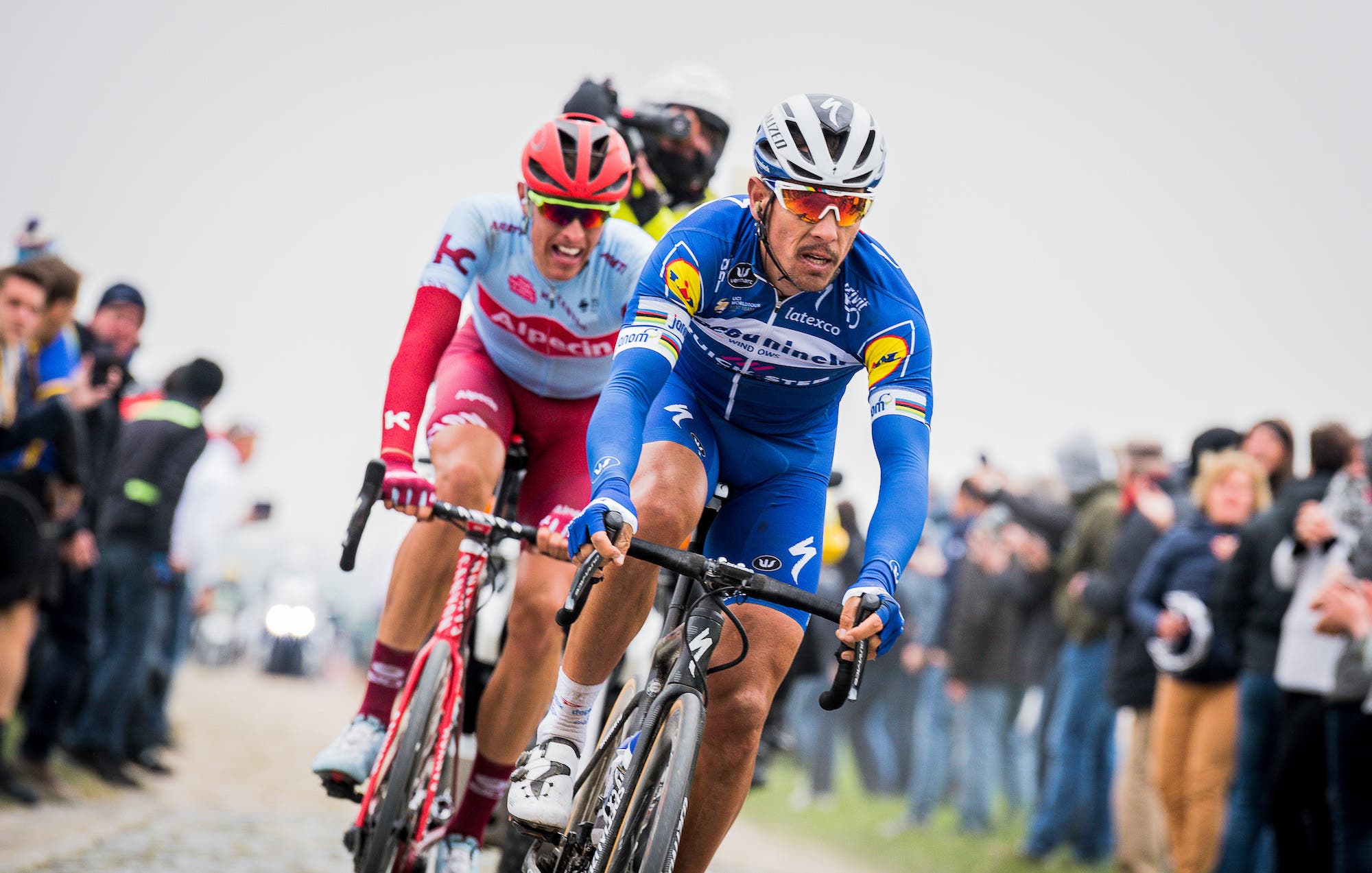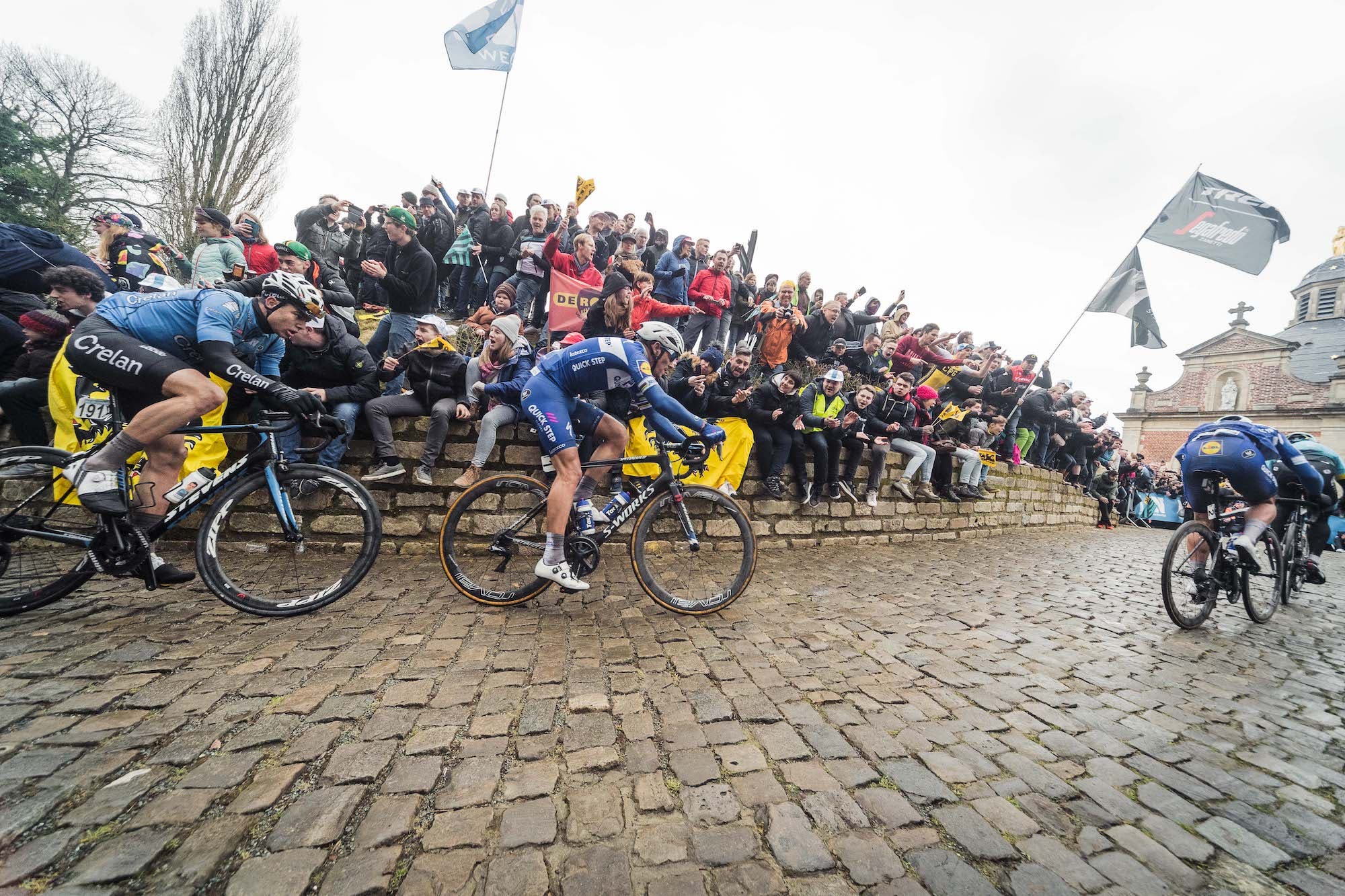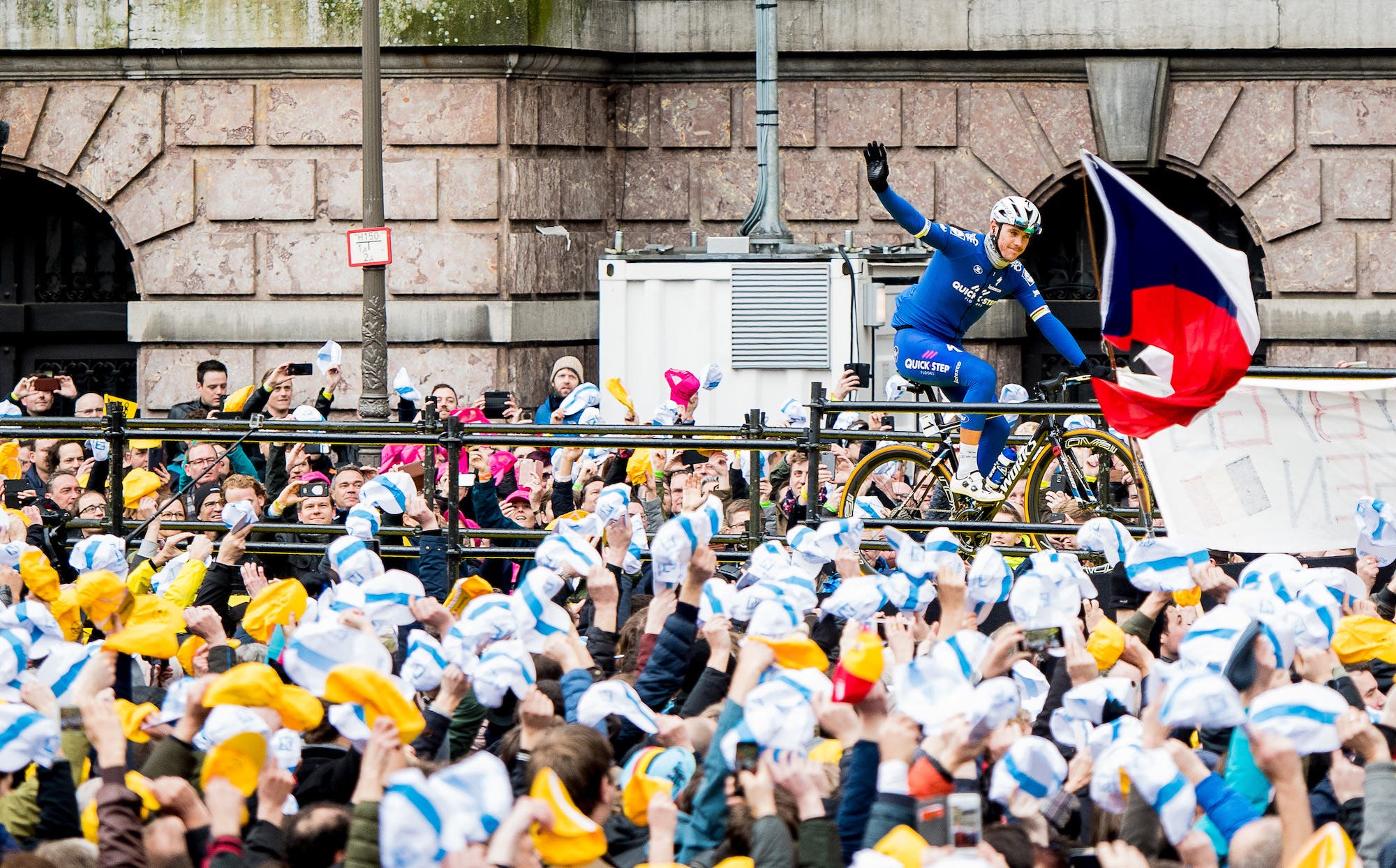Throwback Thursday: Philippe Gilbert is a winner for all seasons

Philippe Gilbert won a lot of big races in his career, including the world title. (Photo: James Startt/VeloNews)
It’s sometimes easy to overlook Philippe Gilbert, as the mild-mannered Belgian often keeps a low profile on social media. But when it comes to winning bike races, the 39-year old is one of the biggest champions during the past two decades not to mention the winningest classics rider active right now
His talent as a puncher won him all of the hilly classics early in his career, not to mention the rainbow jersey awarded to the world champion, and he also rode a spell in the yellow jersey in the 2011 Tour de France.
In recent years, he transformed himself into a master of the cobbled classics, winning both the Tour of Flanders and Paris-Roubaix in an impressive manner.
Also read in Throwback Thursday:
- Tom Boonen and his final Roubaix victory
- Mark Cavendish and life in the fast lane
- Marco Pantani and his place in history
An old-school champion, who rides to please the fans, Gilbert still dreams of winning Milan-Sanremo, the one monument that is still missing from his long list of victories.
But COVID-19 and a hard crash in the opening stage of the 2020 Tour de France have taken their toll. That does not mean that he won’t go into the 2022 race with his eye on victory. And in his nearly 20-year career, Gilbert has repeatedly demonstrated that when he focuses on an objective, he often achieves it.
When was first time Philippe Gilbert was on your radar?

James Startt: I would say somewhere around the time when he did the Paris-Tours-Giro di Lombardy double. Paris-Tours had always been his race, and he attacked every year pretty much at the same place in the final. And you have to remember that back in the day, Paris-Tours was a very coveted race.
Anyway, Gilbert had won it for the first time back in 2008 and in 2009 he attacked and won again in a similar manner. But then a week later he went to Italy and won his first Lombardy, which remains one of the great historic races.
So to pull off a double like that, well you have to be special. And then there was his entire 2011 season where he pulled off the Ardennes hat trick, winning Flèche-Wallonne, Amstel Gold, and Liège-Bastogne-Liège, not to mention the first stage and the yellow jersey in the Tour de France and another Lombardy. That just remains one of the great single seasons in cycling.
Andrew Hood: Gilbert was an up-and-comer by the time I went to Varese to cover the 2008 road worlds. The travel budget was tight in those days, and every hotel was booked up with an hour of the finish line. I ended up staying in some low-budget hotel out by the Malpensa airport, which just so happened to be where Gilbert’s parents and about 75 family and friends were staying.
Man, could those people party. There was beer flowing at breakfast, and they’d still be going hard when I trundled back to the hotel around midnight. They were a great crew, and I ended up sharing many beers with Gilbert’s mom and dad.
Gilbert likes his beer as well. Every year at the Tour Down Under when he’d show up, he’d join me and Rupert Guinness for a beer over an interview. Oh, did I mention he can win bike races, too?
What was your standout moment covering Gilbert?

Hood: It was the 2019 Roubaix. It was interesting watching Gilbert transition from a puncher/sprinter into a deeper rider capable of challenging for the northern classics. At the time when most pros transition into a road captain role, Gilbert retrofitted his engine for a different kind of racing.
It was a smart move to join Deceuninck-Quick-Step, where he proved himself as a great teammate as well as a leader. There were more than a few times when Gilbert could have won but helped a teammate. Payback came in the big races, first with Flanders in 2017, and then in Roubaix in 2019.
He’s come as close as anyone to completing the monument sweep. Unfortunately, a win at Milano-Sanremo likely won’t be in the cards.
Startt: Oh I have had many. Philippe remains one of the true gentlemen in the sport. I first met him when he was a young pro with the FDJ team. I had arranged a portrait and interview with his team manager Marc Madiot the night before Paris-Tours, but Madiot somehow forgot to tell Gilbert or anyone on the team.
Little matter, Gilbert came down after massage and we had a nice chat, and he always said that he loved the images. Then years later after the finish of the 2018 worlds in Innsbruck, I ran into him as I was returning to my hotel and he invited me for a drink as he was hooking up with the French national team after the race.
Who was I to say ‘no,’ right? So we went into the bar and ordered some beers and chatted while we waited for Alaphilippe, Bardet, and the others to show up. We just chatted about life and changes in the sport over his career, and at one point I asked him about his 2017 Tour of Flanders victory. It was a sensitive subject because some were convinced that he only won because Peter Sagan and Greg Van Avermaet crashed on the Kwaremont in the final, but when I heard the way he broke the race down strategically, I was so impressed — and convinced that he would have won regardless of the mishaps behind. I told him that we would have to do a story on this over the winter. And we did!
What was Gilbert’s finest moment?

Startt: Again that is hard to say as he has had so many. But it would have to be his victory in Flanders in 2017 or his 2019 victory in Roubaix. Both of those were simply stellar lessons in bike racing and each was unexpected. Gilbert had earned a reputation as a real puncher, and classics like Liège, Amstel, and Lombardy suited him perfectly. But it wasn’t until late in his career that he really started focusing on the cobbled classics. In some ways, he was racing out of the box, but he used all of his strength and experience that he had gathered over what was already an illustrious career to add two of the biggest monuments to his long list of victories. And both were tactical masterpieces.
In Flanders, it was Gilbert that instructed his Deceuninck team to accelerate early on the Muur van Geraardsbergen. And when he went on the attack early in the final, he did it not to set up his team, but to win himself. Then, two years later, he did it again in Roubaix, seemingly against all odds. Few expected him to win there, but he planned it perfectly. Already at numerous other races, he could be seen working for his teammates, building up the credit and support needed for an all-out assault on Roubaix. Again he forced the pace early and finally broke away for good with Nils Politt on the famous Carrefour de l’Arbre sector, before sprinting to victory on the historic velodrome in Roubaix. Both were displays of strength and strategy and these two late-race victories assure Gilbert’s place in the pantheon of great classics cyclists forever.
